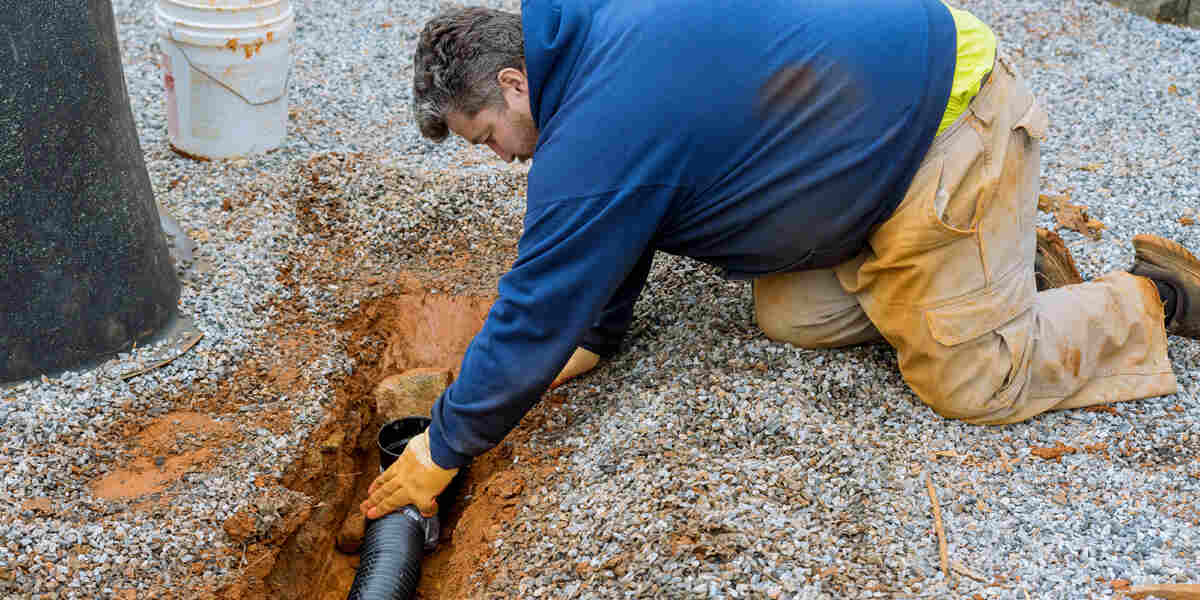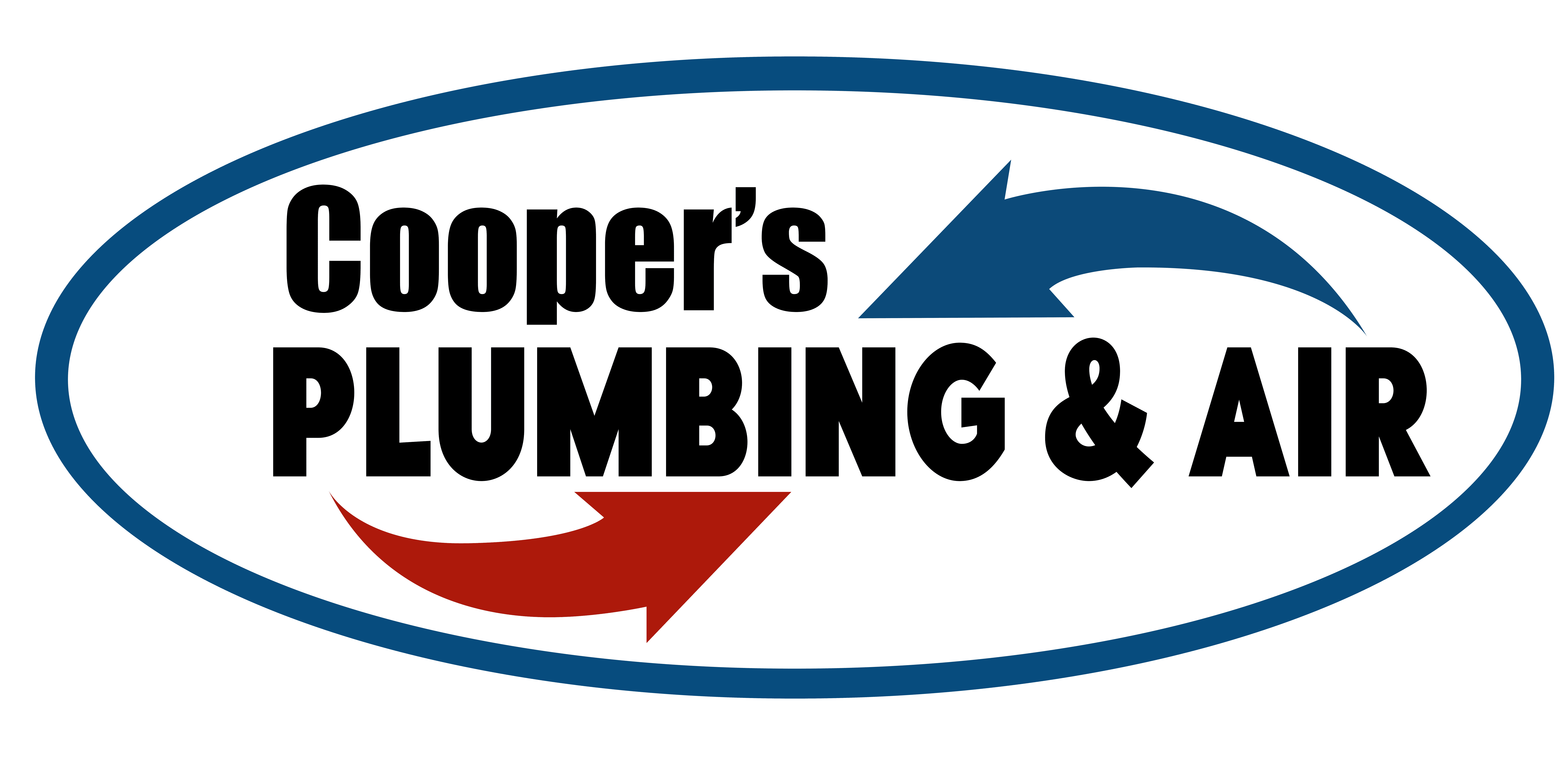
People use their property’s underground sewer lines daily, yet many don’t think much about them until a problem develops that they can’t ignore. Sewer line damage can create an unwanted mess in homes and yards, so it’s essential to get professional services promptly to resolve them. Still, with such a serious situation, you might ask, “Do I need a permit to replace my sewer line?”
At Cooper’s Plumbing & Air, we have a team of skilled plumbers in Bainbridge, GA, who provide various sewer line services including replacement. We understand the importance of adhering to local plumbing codes, which often include obtaining permits to complete specific jobs. Keep reading our guide to learn if you need one for your sewer line project.
Is Sewer Line Replacement Necessary?
Before answering, “Do I need to replace my sewer line?” it helps to understand why the plumbing service might be necessary. Because most residential plumbing systems in Bainbridge connect to municipal plumbing, sewer line construction enables long-term use with great durability. As such, you can go years without experiencing a problem with these underground pipelines.
Unfortunately, problems can still occur under certain conditions. If the pipes don’t have extensive damage, sewer line repairs are often acceptable solutions. Major damage will require sewer line replacement to prevent the problem from worsening or reoccurring.
Cause of Sewer Line Damage
Tree roots are the biggest culprit for major sewer line damage. As underground roots spread through the soil while searching for water, they can encounter a buried sewer pipe. Over time, the tree roots can grow around the pipe, add enough pressure to puncture it, and use its contents for moisture and nutrients.
This type of plumbing damage can result in weakened, clogged, or broken pipes. Other causes for extensive sewer line damage include:
- Extreme Temperatures. Extreme temperature fluctuations can weaken sewer lines.
- Corrosion. No plumping pipe lasts indefinitely; eventually, it will deteriorate or corrode, making it easier for lines to leak or break.
- Debris. If you’re flushing too much non-biodegradable debris down your property’s drains, it could clog the sewer line and put undue stress on it, causing breaks and tears.
Common Warning Signs of Significant Sewer Line Damage
Since sewer pipes are underground in your yard, it could be difficult to know if the line has damage and needs a replacement. Before answering, “Do I need a permit to replace my sewer line?” take note of these warning signs of sewer problems and schedule an inspection from a reputable local plumber to pinpoint the root of the issue:
- Foul-smelling water puddling in your yard
- Slow-moving drains inside your house
- Indoor mold
- Gurgling toilets
- Unusual, gassy smells coming from drains
Why Permits Are a Must for Residential Plumbing Services
When it comes to small residential plumbing jobs like installing a new faucet or repairing a leaky pipe, permits usually aren’t necessary. Yet, plumbing involves an intricate network of pipes, drains, fixtures, and other components that can seriously impact more than just your property if something goes wrong.
Permits help local authorities regulate certain types of work and construction that can impact multiple properties, utility services, and public safety. When you get a permit to work on your property, you’re willing to follow the right procedures and meet all local building and plumbing code requirements.
Permits also help ensure contractors complete the work correctly. Depending on your location, permit requirements may include documentation from hired contractors such as licensing and proof of insurance.
Plumbing Projects That Usually Require a Permit
The answer to, “Do I need a permit to replace my sewer line?” is yes. To replace sewer lines, a qualified plumbing contractor will excavate the yard to expose the pipes and implement the necessary repairs or replacements. As such, this project can damage neighboring pipelines, create public safety issues, or interrupt utility services without the property permit, documentation, and plans in place.
In other words, larger plumbing projects that must adhere to local building codes will need permits. Other plumbing projects that often require permits include:
- Re-pipping
- Changes to an existing plumbing or sewer system’s location
- Drain line replacements
- Water heater replacements
Do You Need a Permit To Replace a Sewer Line in Bainbridge?
As a Bainbridge homeowner, you’ll need a permit to replace your sewer line. The Building Department is the local authority that handles multiple county and city ordinances as well as all construction-related permits. That includes building permits, plumbing permits, sprinkler installation permits, and electrical permits.
In order to obtain a permit to replace your sewer line, you must hire a contractor with an Occupational Tax Certificate for the state of Georgia. These professionals must also show proof of licensure.
Frequently Asked Questions About Sewer Line Permits
What’s the Process for Getting a Permit To Replace a Sewer Line?
To get a sewer line replacement permit, you must hire a licensed contractor, gather documents like construction plans outlining the scope of the work and the project’s materials, apply for the permit according to local regulations, and wait for approval.
What Happens If You Don’t Get a Permit?
Without a proper permit, you can face severe consequences such as hefty fines, liability issues, safety concerns due to a lack of compliance with municipal regulations, and incomplete work due to a stop-work order.
Who Pulls Permits for Sewer Line Replacement in Bainbridge?
In Bainbridge, licensed and insured contractors will most likely obtain permits to replace sewer lines. Yet homeowners who are homestead-exempt can get their own permits.
Get the Plumbing and Sewer Services You Need From Cooper’s Plumbing & Air
If you’re still uncertain about questions like, “Do I need a permit to replace my sewer line?” reach out to our professionals at Cooper’s Plumbing & Air. Our licensed, knowledgeable technicians have more than 20 years of experience providing comprehensive plumbing services such as sewer line repair and installation, gas leak detection, and home repiping in Bainbridge, GA.
Regardless if you notice the warning signs of sewer line damage or have no water in the house, our professionals can help — call (866) 464-7132 to request a quote. Learn more now.
